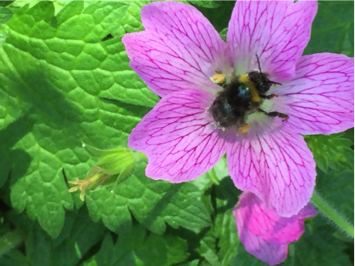Avoiding Extinction!
“Today WE are the asteroid causing many, many species to go extinct simultaneously.”

Last night I got round to watching Extinction: The Facts, the latest David Attenborough documentary on the BBC, looking at how humans are affecting the ecosystems and the species on which we depend. This blog summarises some of the key points and briefly quotes the experts interviewed.
One million plant and animal species face extinction.
It was heart wrenching, to see the damage we’re doing to our beautiful planet. Also really frustrating to think how this is affecting ourselves as well.
The programme started with a ranger protecting the last two Northern White Rhinos – a mother and daughter. It’s so sad to think that when they die, that amazing species will be gone forever.
While the high-profile species like orangutans and rhinos get the coverage, it’s going to be the small ones that affect us personally most.
There are grave impacts for us all – affecting our food, our water and our own health.
Causes of species loss and extinction
Species loss and the spread of diseases (e.g. Covid-19) has been caused by the illegal wildlife trade, massive population growth and extensive food production in previously ‘wild’ areas, for beef and soy production (soy is used in feedstock particularly for poultry).
Across the world, there is poor environmental legislation to control pollution and unrestrained growth. “There’s not a lot of wild left out there.” Of the land not covered by ice, we’ve converted 75% of it to another use – mostly to feed us.
There has been significant growth in consumption – not just because of the growing developing countries, but also our own excessive consumption patterns in the west.
And, of course, climate change. With expected world temperatures to rise by 3-4oC, there are now and will be severe impacts on our day to day lives – wildfires, extreme storms, flooding in places, drought in others – affecting crops, species, our homes.
How can we help avoid the extinctions?
So, what can we do? There are three easy options, starting with consume less and responsibly. Don’t just buy stuff to use once and throw away. Reduce meat and dairy consumption (you don’t have to go full vegan, even 25% less will have a great impact). And cut out the food waste – nearly half of what we grow and buy is just thrown away.
We’ve been talking about this for years now, but not making enough progress. The youth of tomorrow will look back at this generation with horror and say “What were you thinking?”.
We have a moment when we can change our world and make it better… that moment is now.
I would thoroughly recommend you watch the programme – share it with your family, your friends and colleagues. If you’re pushed for time, there is a six-minute summary – this would be great for a green business event.
Here is the six-minute summary
Nature around you
In addition, think about the nature around you. My criticism of the wildlife documentaries is that they usually show exotic species from the other side of the world. Yes, they are amazing. And yes, they are vulnerable. But they can seem far too remote for many people. If we want everyone to make a change, they have to see the connection with their own lives – that their own actions affect the wildlife, nature, species around them, and their way of life.
That’s why I make a point of going for walks in my local neighbourhood and take time to appreciate the life I see around me. At this time of the year, the things I appreciate most are the juicy blackberries, the acorns falling to the ground (a bit slippery when I’m running!), the leaves turning in colour and squirrels chattering in the tree tops. OK, they’re not likely to become extinct (any time soon)… but they are beautiful!
_____________________
Liked this post? Sign up for the Eshcon Newsletter.

